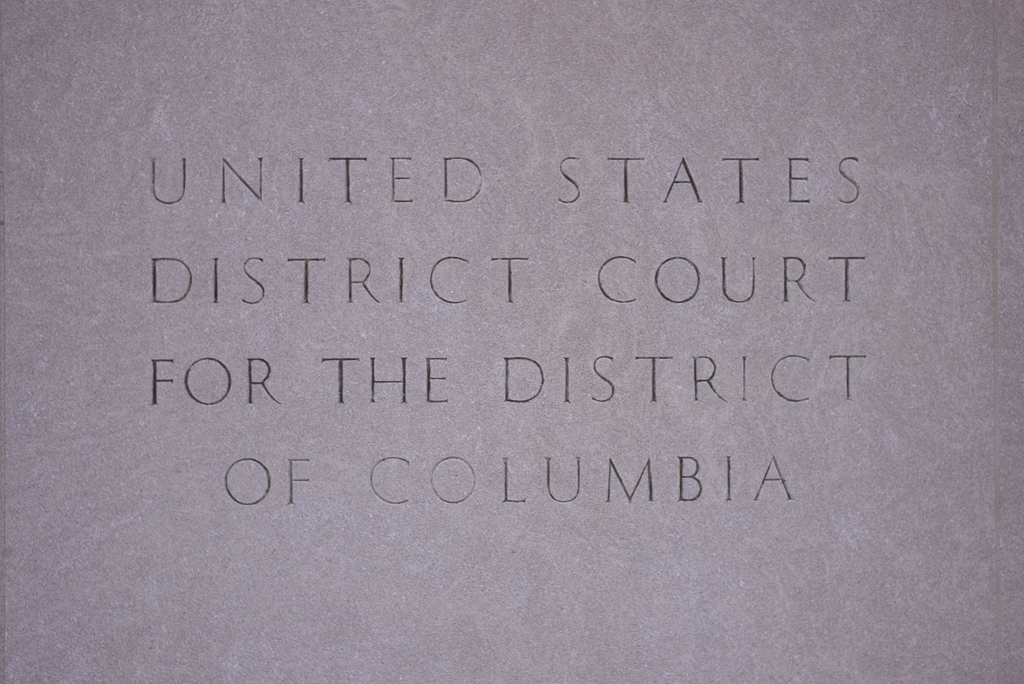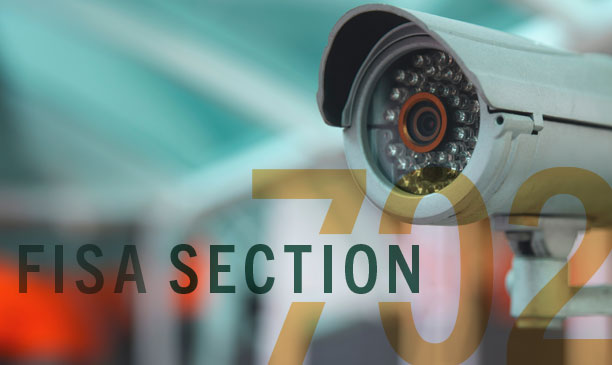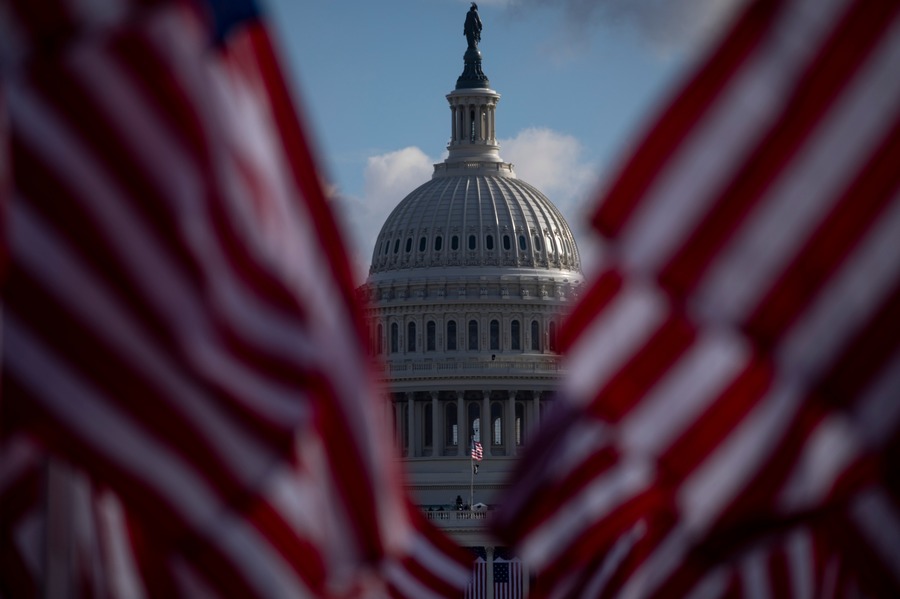Judge Mehta’s Ruling in the Mazars Case: A Swift Victory for Congress
On May 20, Judge Amit Mehta of the U.S. District Court for the District of Columbia issued his decision in Trump v. Committee on Oversight and Reform, ruling that President Trump cannot block the committee’s subpoena to Trump’s accountant, Mazars. The judge found that the committee had demonstrated a facially valid legislative purpose for its investigation and the issuance of the subpoena. As of this morning, Trump has already filed his appeal.

On May 20, Judge Amit Mehta of the U.S. District Court for the District of Columbia issued his decision in Trump v. Committee on Oversight and Reform, ruling that President Trump cannot block the committee’s subpoena to Trump’s accountant, Mazars. The judge found that the committee had demonstrated a facially valid legislative purpose for its investigation and the issuance of the subpoena. As of this morning, Trump has already filed his appeal.
The 41-page opinion is lengthy, thorough and detailed, given the relative simplicity of the issues. It was also issued astonishingly swiftly—the complaint was filed on April 22, oral arguments occurred less than a week ago and the record was closed only two days prior to the judge’s ruling. Judge Mehta’s opinion provides a clear rejection of Trump’s arguments that Congress lacks a legitimate legislative purpose—an argument Trump is making across the board in order to reject oversight attempts by House Democrats. The speed of consideration and the content of the opinion could provide a blueprint for similar cases that are already in court or likely will be soon.
For example, oral arguments in Trump v. Deutsche Bank AG are scheduled for May 22 in the U.S. District Court for the Southern District of New York before Judge Edgardo Ramos. That case involves two different House committees—the financial services committee and the intelligence committee—but the arguments are likely to sound similar to the Mazars case. Trump is seeking a preliminary injunction to block subpoenas directing Deutsche Bank and Capital One to turn over his bank records, as well as those of his three oldest children and various Trump businesses.
Meanwhile, on May 17, Treasury Secretary Steve Mnuchin made clear he would not comply with a congressional subpoena to hand over Trump’s tax returns to Rep. Richard Neal, the chairman of the House Committee on Ways and Means. Mnuchin’s one-page letter used the same reason as most of the other refusals by the executive branch to provide information to Congress—that the request lacks a legitimate legislative purpose even though there is a statute that requires Treasury to turn over such documents upon request of the committee. This issue, too, is likely to land in court soon.
It is difficult to predict how quickly the Court of Appeals for the D.C. Circuit will move to consider and decide the Mazars case. The legal reasoning in Mehta’s opinion is not surprising and breaks no new ground, so it is difficult to see the appeals court reversing the decision. Below is an overview of Mehta’s opinion, which will likely become an important touchstone in Congress’s efforts to overcome attempts by Trump and the executive branch to avoid congressional oversight.
****
Judge Mehta begins his opinion by grounding the issue before him firmly in history, quoting an objection by President James Buchanan to an investigation by a congressional committee in 1860s. Like Trump, Buchanan complained that Congress’s real aim was harassment.
Mehta lays out the well-established legal principles that bear on the facts of the case. First, he recounts the Supreme Court’s repeated support for the broad investigative power rooted in Congress’s legislative power laid out in Article I, Section 1, of the Constitution. He also identifies a related function—Congress’s “informing function”—which was recognized by the Supreme Court in Watkins v. United States as permitting “Congress to inquire into and publicize corruption, maladministration or inefficiency in agencies of the Government.” Unsurprisingly, Mehta also recognizes that Congress’s powers are not unbounded—Congress can neither inquire into private affairs unrelated to a valid legislative purpose nor exercise the powers of law enforcement assigned under the Constitution to the executive and the judiciary.
Next, Mehta indicates—citing McGrain v. Daugherty—that a court’s analysis of whether Congress has used its investigative power improperly must be highly deferential to the legislative branch. The court likewise may not look into the motives of committee members to negate an otherwise facially valid legislative purpose.
Mehta takes pains to use Supreme Court case law to establish that Congress’s investigative function need not be tied to specific legislation and that the critical inquiry is not legislative certainty, but legislative potential. That is, if the subject matter of the investigation is one on which legislation could be had, then Congress is acting within its legislative function.
Mehta then examines each of the four prongs of the committee’s investigation that spurred the issuance of the subpoena and evaluates their legitimacy under this standard. He finds that each of the prongs of the investigation is a subject “on which legislation could be had.”
First, Congress can reasonably consider Trump’s financial documents in connection with deciding whether to legislate on federal ethics laws and regulations, and as such “there can be little doubt that Congress’s interest in the accuracy of the President’s financial disclosures falls within the legislative sphere.”
Second, investigating whether the president is abiding by the Foreign Emoluments Clause of the Constitution is likewise a subject on which legislation, or similar congressional action, could be had because the Constitution expressly vests in Congress the unique authority to approve the president’s acceptance of emoluments. Mehta states that “[w]ithout such power, Congress’s constitutional function to approve or disapprove Emoluments would be severely and unduly constrained. The Founders could not have intended that result.”
Third, the committee’s investigation to determine whether the president has any conflicts of interest lies firmly within Congress’s province to legislate. Exposing conflicts of interest is one of the core objectives of the Ethics in Government Act, a statute that shows Congress’s belief that public disclosure of conflicts of interest is desirable despite its cost in loss of personal privacy.
Fourth—and perhaps most significantly—Mehta finds that a congressional investigation into illegal conduct before and during the president’s tenure in office fits comfortably within the broad scope of Congress’s investigative powers. The judge cites Congress’s “informing function” as encompassing the power to inquire into and publicize corruption. Importantly for the current circumstance, Mehta then states:
It is simply not fathomable that a Constitution that grants Congress the power to remove a President for reasons including criminal behavior would deny Congress the power to investigate him for unlawful conduct—past or present—even without formally opening an impeachment inquiry.
Mehta cites the Watergate and Whitewater investigations and states that “Congress plainly views itself as having sweeping authority to investigate illegal conduct of a President, before and after taking office. This court is not prepared to roll back the tide of history.”
The judge considers and rejects each of Trump’s substantive arguments, again grounding his analysis in Supreme Court rulings, in this case the standard laid out in Tenney v. Brandhove: “To find that a committee’s investigation has exceeded the bounds of legislative power it must be obvious that there was a usurpation of functions exclusively vested in the Judiciary or the Executive” (emphasis added by Mehta). Regarding Trump’s contention that any regulation of the president’s finances or conflicts of interest would be unconstitutional, Mehta states that such a contention “flies in the face of decades of legislation covering the President,” citing the post-Watergate Ethics in Government Act and other laws that require reporting by the president and other executive branch officials. He then goes further to limit the role of the court: “But there is an even more fundamental problem with Plaintiffs’ position. It is not the court’s role in this context to evaluate the constitutionality of proposed or contemplated legislation. Doing so would go beyond its limited powers.” For emphasis, Mehta points out that in no case since 1880 has the Supreme Court or the D.C. Circuit interfered with a congressional subpoena.
In addressing the procedural aspects of the case, Mehta treats the parties’ briefing as cross-motions for summary judgment, arguing that the legal issues presented do not require the court to resolve any fact contests because the material facts are not in dispute. He emphasizes the importance of deciding the case speedily, citing the Supreme Court’s statement in Eastland v. U.S. Servicemen’s Fund that motions to enjoin a congressional subpoena “be given the most expeditious treatment by district courts because one branch of Government is being asked to halt the functions of a coordinate branch.” The court also restates “the fact that the Constitution’s Speech or Debate Clause forecloses Plaintiffs from compelling discovery from the Oversight Committee, its Members, or staff.” On the question of whether to grant a stay pending appeal, Mehta notes that “the President is subject to the same legal standard as any other litigant that does not prevail” and that Trump has not raised a serious legal question going to the merits of the case. The judge declines to stay the return date of the subpoena beyond the seven days that had already been agreed upon by the parties.
****
This opinion does not break any new ground in its substantive legal arguments, but it does show that, amidst a flood of challenges between Congress and the president, judges can make conscious decisions to try to move cases along quickly. If other judges considering these disputes take the same urgent approach, it is possible that some aspects of the disputed contours of the separation of powers between the executive branch and Congress—which if left to their own devices tend to take divergent positions that favor their respective constitutional roles—could be substantially clarified by the courts during the current Congress.
Such expeditious treatment by courts of a different separation of powers question could be the next substantive legal issue to be decided: specifically, whether former White House Counsel Don McGahn must appear before the House judiciary committee to testify about matters described in Special Counsel Robert Mueller’s report on Russian interference in the 2016 election and obstruction of justice by Trump. On May 20, the Justice Department’s Office of Legal Counsel (OLC) advised the White House Counsel’s office that Congress may not constitutionally compel former White House Counsel Don McGahn to testify. Notwithstanding the length and breadth of executive branch practice, however, the only judge to have addressed the issue of “testimonial immunity”—Judge John D. Bates of the U.S. District Court for the District of Columbia—roundly rejected the theory as “without any support in case law.” The case ended in a negotiation between the executive and legislative branches and, as a result, was never considered by an appeals court or the Supreme Court.
In theory, the McGahn case could land in court and be decided fairly quickly if the judges were so inclined. And depending on how it unfolds, the outcome this time around could be both more definitive and more enduring.





